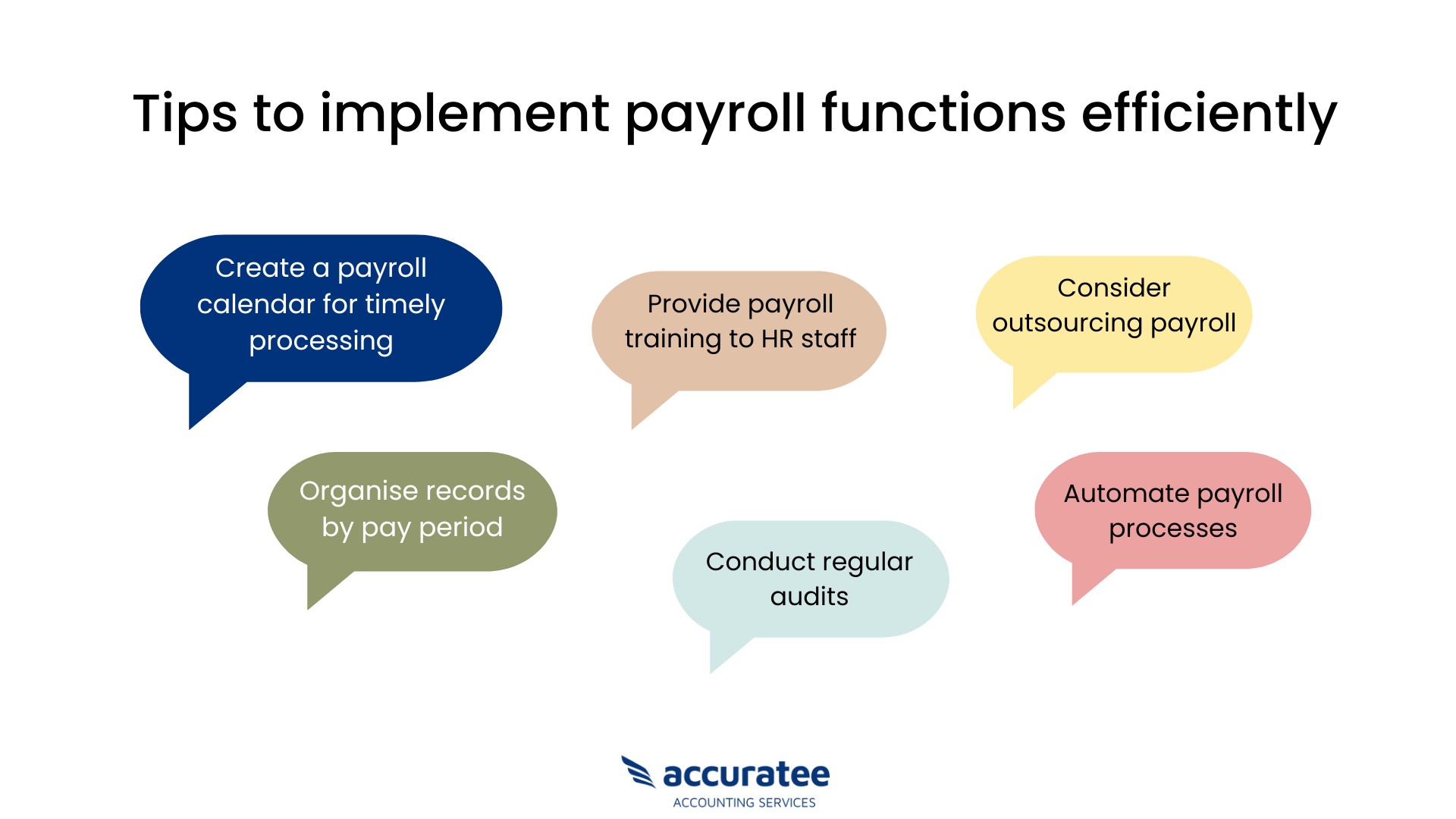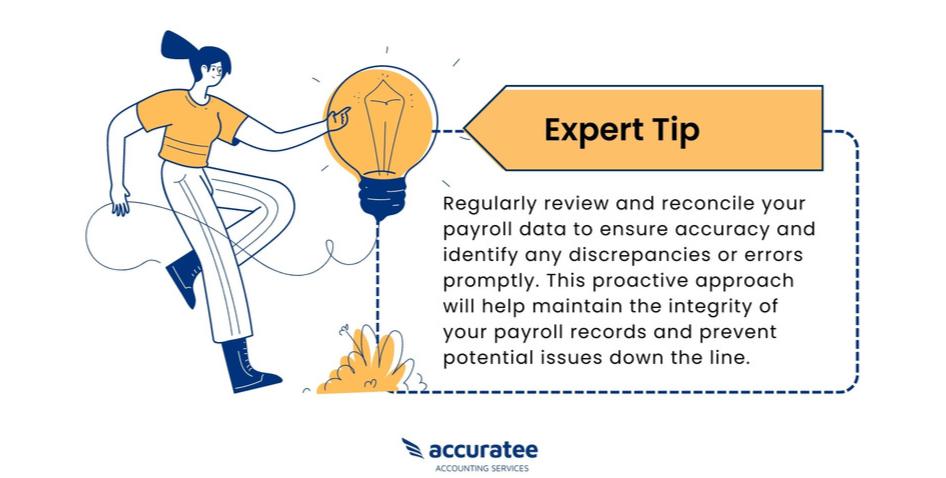What are the key payroll tax obligations for Australian businesses?
Introduction:
In the dynamic landscape of Australian business, efficient payroll management stands as a crucial pillar for success. As businesses strive to navigate complex regulations and optimise their operations, understanding payroll tax obligations has become more important than ever.
At CleanSlate, we recognise the significance of this aspect and offer our expertise as an outsourcing accounting and bookkeeping service provider in Australia. In this article, we delve into the key reasons why payroll management should be a top priority for small and medium businesses, highlighting the invaluable benefits that come with mastering this essential function.
Key takeaways
Efficient payroll management is crucial for success in business.
Key payroll tax obligations include income tax withholding, reporting to the ATO, superannuation contributions, and compliance with employment laws.
Maintaining accurate payroll records is important for legal compliance, employee trust, financial management, tax reporting, and historical reference.
Using payroll software saves time, enhances accuracy, ensures compliance, and simplifies superannuation management.
CleanSlate offers outsourcing accounting and bookkeeping services to help businesses navigate payroll tax obligations.
What is payroll?
Payroll refers to managing and administering employee compensation within a business or organisation, including wages, salaries, bonuses, and deductions. It encompasses calculating and distributing payments to employees in exchange for their work or services rendered.
Payroll involves various tasks, such as tracking employee hours, calculating wages or salaries, deducting applicable taxes, and ensuring compliance with employment laws and regulations. It also entails managing employee benefits, such as insurance contributions, retirement plans, and other deductions.
Accurate and timely payroll management is necessary for maintaining employee satisfaction, complying with legal requirements, and ensuring the financial stability of a business. It involves meticulous record-keeping, adherence to tax regulations, and staying up to date with changes in employment laws.
Explain the process of setting up employee records.
-
Tax file number (TFN) declarations:
When hiring a new employee, obtaining their tax file number (TFN) declaration is essential. The TFN declaration form is provided by the Australian Taxation Office (ATO) and captures important information such as the employee's TFN, personal details, and residency status. This form must be completed by the employee and submitted to the ATO. As an employer, you are responsible for ensuring that TFN declarations are obtained and securely stored for each employee.
-
Employment Contracts:
Creating employment contracts is an integral part of establishing employee records. An employment contract outlines the terms and conditions of employment, including job responsibilities, pay, working hours, leave entitlements, and termination procedures. The contract should comply with relevant employment laws and clearly define the rights and obligations of both the employer and the employee. It is essential to provide a copy of the employment contract to the employee and retain a signed copy for your records.

Payroll processing and wage calculation: A step-by-step guide
-
Gather information:
Collect necessary employee details like personal information, TFNs, and employment start dates.
-
Record time and attendance:
Implement a system to track the working hours, including regular hours, overtime, and breaks.
-
Calculate gross wages:
Apply hourly rates, overtime rates, and any applicable allowances or bonuses to determine gross salary.
-
Deduct taxes and statutory contributions:
Withhold income tax based on tax scales and deductions. Deduct other mandatory contributions like Medicare levy and superannuation.
-
Account for employee benefits and deductions:
Consider paid leave, public holidays, and authorised deductions such as union fees or health insurance premiums.
-
Calculate net pay:
Subtract total deductions from gross wages to arrive at net pay (take-home pay).
-
Generate payroll reports:
Prepare reports summarising payroll calculations and expenses for analysis and reporting.
-
Process payroll and distribute payments:
Generate pay slips or statements and distribute payments to staff using chosen methods.
-
Maintain accurate records:
Keep detailed records of employee information, timesheets, wage calculations, and payment records for auditing and compliance purposes.
What are the obligations related to income tax withholding and reporting to the Australian Taxation Office?
Income tax withholding obligations
One of the key payroll tax obligations for Australian businesses is the withholding of income tax from staff wages. Here are the main obligations related to income tax withholding:
-
Tax tables and withholding rates
Use ATO-provided tax tables to calculate the correct amount of income tax to be withheld from employee wages, considering factors like taxable income, tax offsets, and withholding declarations.
-
Pay as you go (PAYG) withholding
As an employer, you are responsible for withholding the correct amount of income tax from employee wages and remitting it to the ATO. This is commonly known as PAYG withholding.
-
PAYG payment summaries
Provide PAYG payment summaries to the staff at the end of the financial year. These summaries outline the total salary paid and withheld amounts.
-
Fringe benefits tax (FBT)
If you provide fringe benefits to employees, such as company cars or accommodation, you may have obligations related to FBT. It requires calculating and withholding tax on the taxable value of certain benefits provided.
Reporting and remittance process to the ATO
-
Business activity statement (BAS)
Lodge your BAS either monthly or quarterly, depending on your reporting frequency. The BAS includes information on wages paid, tax withheld, and other relevant services tax data.
-
PAYG withholding payment summary annual report
Submit the PAYG withholding payment summary annual report to the ATO. This report provides a summary of the payment summaries issued to employees, along with other required details.
-
Tax payment and remittance
Pay the withheld income tax to the ATO by the due dates specified. This can be done electronically via the ATO's online portal or through other approved payment methods.
-
Annual employer obligations
Complete and submit annual employer obligations, including the PAYG withholding annual report, to the ATO. These reports reconcile the total wages paid, tax withheld, and superannuation contributions made during the financial year.
Expert Bookkeeping at Your Fingertips!
What are the obligations for calculating, paying, and reporting superannuation contributions?
Importance of superannuation contributions
-
Retirement savings
Superannuation contributions help employees save for their retirement, ensuring financial security in their post-working years.
-
Employee benefits
Providing superannuation contributions is an essential employee benefit that helps attract and retain talent, enhancing employee satisfaction and loyalty.
-
Legal requirement
It is a legal obligation for employers to make superannuation contributions on behalf of eligible employees to comply with the Superannuation Guarantee (SG) legislation.
Calculation of superannuation contributions
-
Superannuation guarantee (SG) rate
The SG rate is a percentage of an employee's ordinary time earnings and is currently set at 10.5% (subject to change by legislation). It applies to eligible staff aged 18 years and above.
-
Ordinary time earnings
Calculate superannuation contributions based on an employee's ordinary time earnings, which generally include wages, salaries, commissions, allowances, and some bonuses.
Payment of superannuation contributions
-
Payment frequency
Superannuation contributions must be made at least quarterly, within 28 days after the end of each quarter.
-
Superannuation fund choice
Staff have the right to choose their superannuation fund, and employers must comply with their employees' fund choice and make contributions accordingly.
-
Payment methods
Contributions can be made electronically through the SuperStream system, which allows for efficient and streamlined payment processing.
Reporting obligations for superannuation contributions
-
Superannuation guarantee contributions report
Employers are required to provide a superannuation guarantee contributions report, which details contributions made for each employee during a specific period.
-
Employee payment summaries
Include superannuation contributions in employee payment summaries or income statements for comprehensive record-keeping.
What are the main employment laws and regulations that affect payroll?
Main employment laws and regulations affecting payroll
-
Minimum wage requirements
Employers must adhere to minimum wage laws set by the Fair Work Commission. The minimum salary ensures that employees receive fair and reasonable money for their work.
-
Modern awards
Modern awards establish industry-specific minimum employment standards, including salary, penalty rates, and allowances. Employers must comply with the applicable award relevant to their business and employees' roles.
-
National Employment Standards (NES)
The NES sets out minimum entitlements for all employees in Australia, covering areas such as maximum working hours, annual leave, sick leave, and parental leave. Employers must ensure compliance with these standards.
Role of Fair Work Australia and regulatory bodies
-
Fair Work Australia
Fair Work Australia is the national workplace relations tribunal responsible for enforcing and administering workplace laws. It sets minimum wages, maintains modern awards, and resolves workplace disputes.
-
Fair Work Ombudsman (FWO)
The FWO educates and monitors compliance with employment laws. They provide resources, conduct audits, and investigate and take enforcement action against employers who violate workplace laws.
-
Australian Taxation Office (ATO)
While primarily responsible for taxation matters, the ATO also plays a role in ensuring payroll compliance. They monitor PAYG withholding, superannuation contributions, and reporting obligations.
Explain the importance of maintaining accurate payroll records and documentation
-
Legal compliance
Accurate records ensure compliance with employment laws and protect against audits or disputes.
-
Employee trust
It demonstrates transparency and builds trust among employees.
-
Financial management
Detailed records provide insights for budgeting, forecasting, and resource allocation.
-
Tax reporting and audits
Accurate records facilitate smooth tax reporting and minimise penalties during audits.
-
Employee benefits and leave management
Records assist in managing employee benefits and leave entitlements.
-
Historical reference and data analysis
Records serve as a historical reference for analysis and decision-making.

What are the payroll tax obligations?
Payroll tax is a state-based tax imposed on an employee's wages paid or payable above a certain threshold amount. Here are some obligations related to payroll tax:
-
Thresholds
Each relevant state or territory sets a pay payroll tax threshold based on total wages or group wages for related businesses.
-
Rates
Payroll tax rates vary among states and territories, calculated as a percentage of total taxable wages exceeding the threshold amount.
-
Registration
If the payroll exceeds the threshold, businesses must register for payroll tax with the state or territory tax revenue office.
-
Payment and reporting
Payroll tax payments are made on a monthly or quarterly basis, with due date varying by state. Employers must calculate the liability and report the wages subject to payroll tax.
-
Exemptions and concessions
Some states offer exemptions or concessions for specific types of wages, such as apprentices or trainees.
-
Compliance and record-keeping
Accurate record-keeping is crucial to ensure compliance with payroll obligations and facilitate potential audits by the revenue office.
Understanding and fulfilling these payroll tax obligations is essential for compliance with state-based tax regulations. Consulting with a reputed accounting firm like CleanSlate or a relevant revenue office is advisable for accurate adherence to payroll tax obligations.
What is single touch payroll?
Single touch payroll (STP) was introduced by the Australian Government on 1 July 2018 for employers with 20 or more employees, making it a mandatory obligation for them.
It aimed to simplify payroll reporting processes and improve compliance with the Australian Taxation Office (ATO). Subsequently, on 1 July 2019, the STP reporting requirement expanded to include sole traders and small businesses with 19 or fewer employees.
Under STP, employers are required to report employee payroll information, including salaries, wages, tax withholdings, superannuation, allowances, deductions, and more, to the ATO each time while paying staff. This real-time reporting eliminates the need for separate reporting periods and provides accurate and up-to-date information to the ATO.
By leveraging STP and STP-enabled software, businesses can simplify their payroll reporting obligations, reduce administrative burdens, and ensure accurate and timely reporting to the payroll tax administration. It streamlines the transfer of data, improves compliance, and promotes more efficient payroll management.
Turn Your Bookkeeping into a Breeze!
What are the benefits of using payroll software?
Given below are some of the benefits of using payroll software:
- Time-saving automation of payroll calculations and processes
- Enhanced accuracy and reduction of manual errors
- Streamlined compliance with tax and superannuation obligations
- Integration with time and attendance systems for seamless wage calculations
- Employee self-service portals for easy access to pay stubs and information
- Comprehensive reporting and analytics for better insights into labour costs
- Simplified superannuation management and reporting
- Compliance with single touch payroll (STP) requirements
Here are some of the popular payroll software options for Australian businesses:
- MYOB
- Xero payroll
- Quickbooks online payroll
- Reckon payroll
- KeyPay
- Access MicrOpay
- ADP payroll solutions
- WageEasy
These payroll software options offer various features and capabilities to meet the payroll needs of businesses, ranging from small to large enterprises. It is recommended to explore the specific features and pricing of each software to choose the one that aligns with your business requirements.
What are the benefits of outsourcing payroll services to CleanSlate?
-
Expertise and knowledge
CleanSlate specialises in payroll services and possesses extensive knowledge of tax laws, regulations, and compliance requirements.
-
Time and resource savings
Outsourcing payroll frees up valuable time and resources for small businesses, allowing them to focus on core business activities and strategic initiatives.
-
Cost-effectiveness
CleanSlate offers cost-effective payroll solutions, eliminating the need for businesses to invest in payroll software, infrastructure, training, and maintaining an in-house payroll team.
-
Data security and confidentiality
We are an ISO 27001-certified company adhering to international data security and confidentiality standards. We implement robust security measures and follow privacy regulations to protect sensitive employee information.
-
Compliance and accuracy
Our firm ensures compliance with legal obligations, such as tax withholding, superannuation contributions, and reporting. Our expertise minimises the risk of compliance errors and supports accurate payroll calculations.
-
Scalability and flexibility
CleanSlate can accommodate small and medium size business structure, providing scalable payroll solutions that can adapt to changing business needs, whether it's expansion, workforce fluctuations, or new hires.
-
Access to advanced technology
We utilise advanced payroll software and technology to streamline processes, enhance efficiency, and deliver accurate and timely payroll services.
-
Dedicated support and assistance
Our firm offers dedicated support and assistance to clients, providing personalised customer service, promptly addressing queries or issues, and offering guidance on payroll best practices.
Wrapping up
When it comes to payroll management and compliance, seeking professional assistance can provide businesses with expert knowledge, accurate calculations, and peace of mind. They can streamline their payroll processes; ensure compliance with regulations, and save valuable time and resources.
At CleanSlate, we take pride in our role as a trusted partner, offering expert outsourcing accounting and bookkeeping services. Let us empower your business to thrive by effectively managing payroll, allowing you to focus on what truly matters: growth, success, and achieving your vision.
Don't hesitate to reach out to us for reliable and efficient payroll services that meet your specific business needs.









